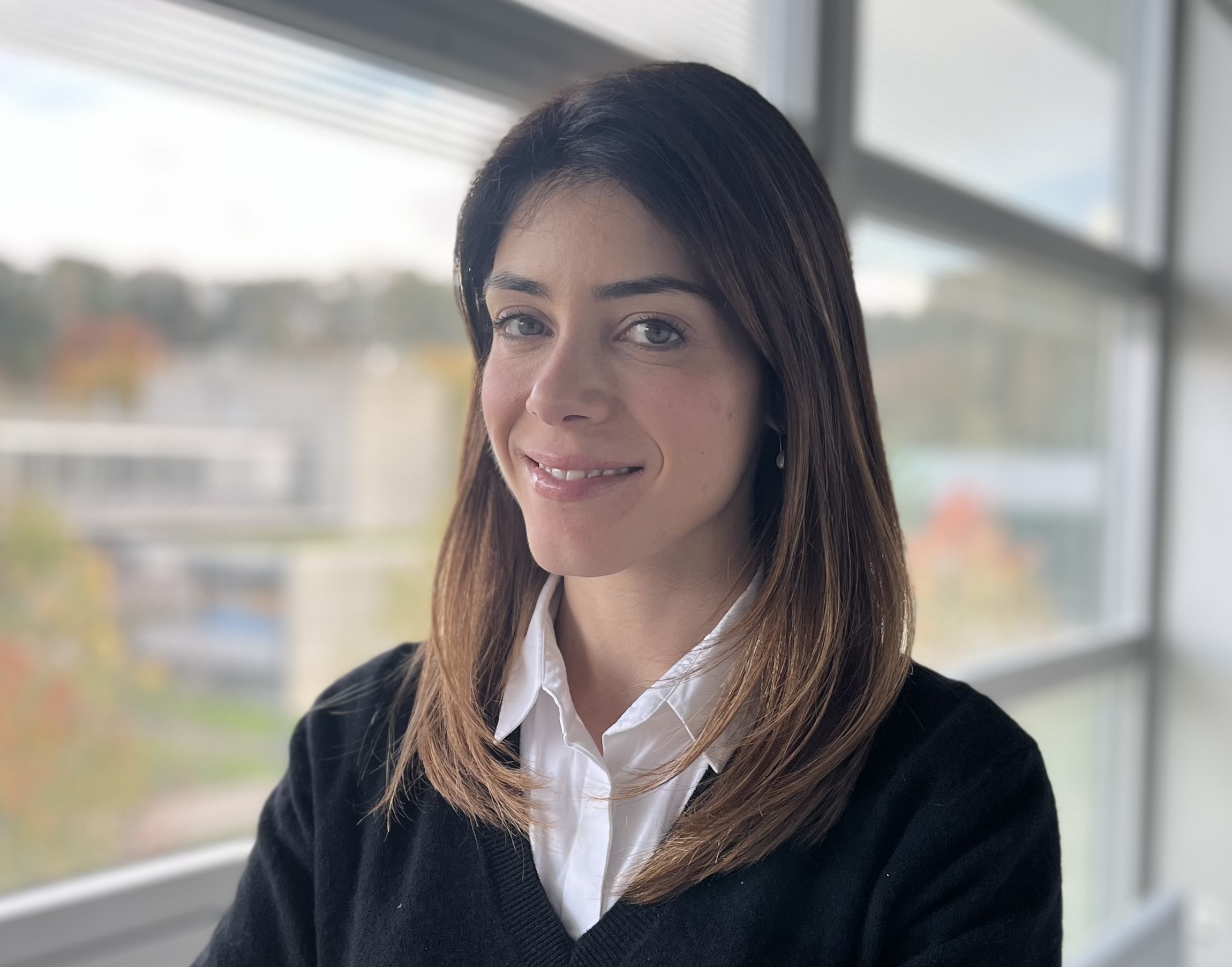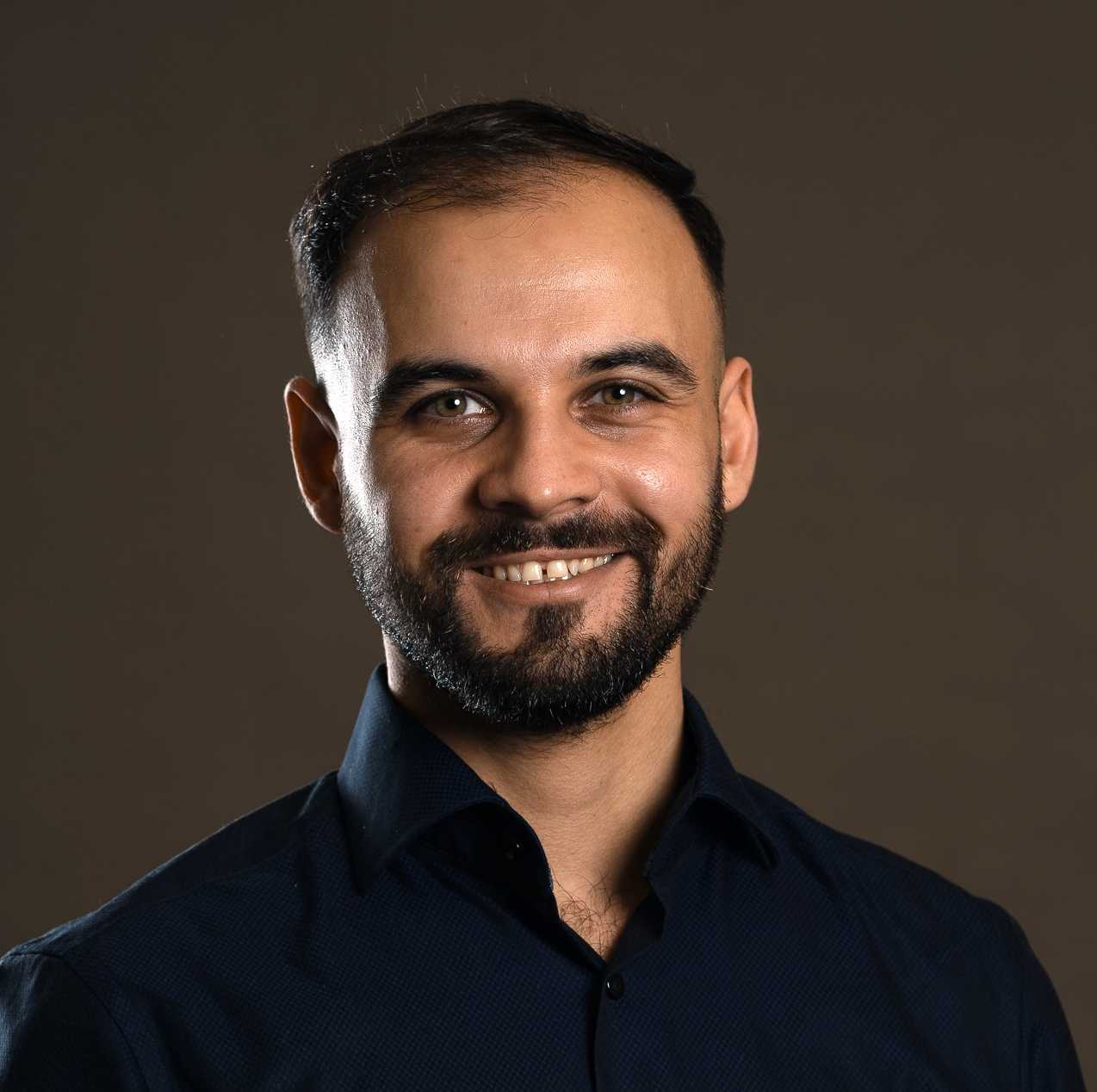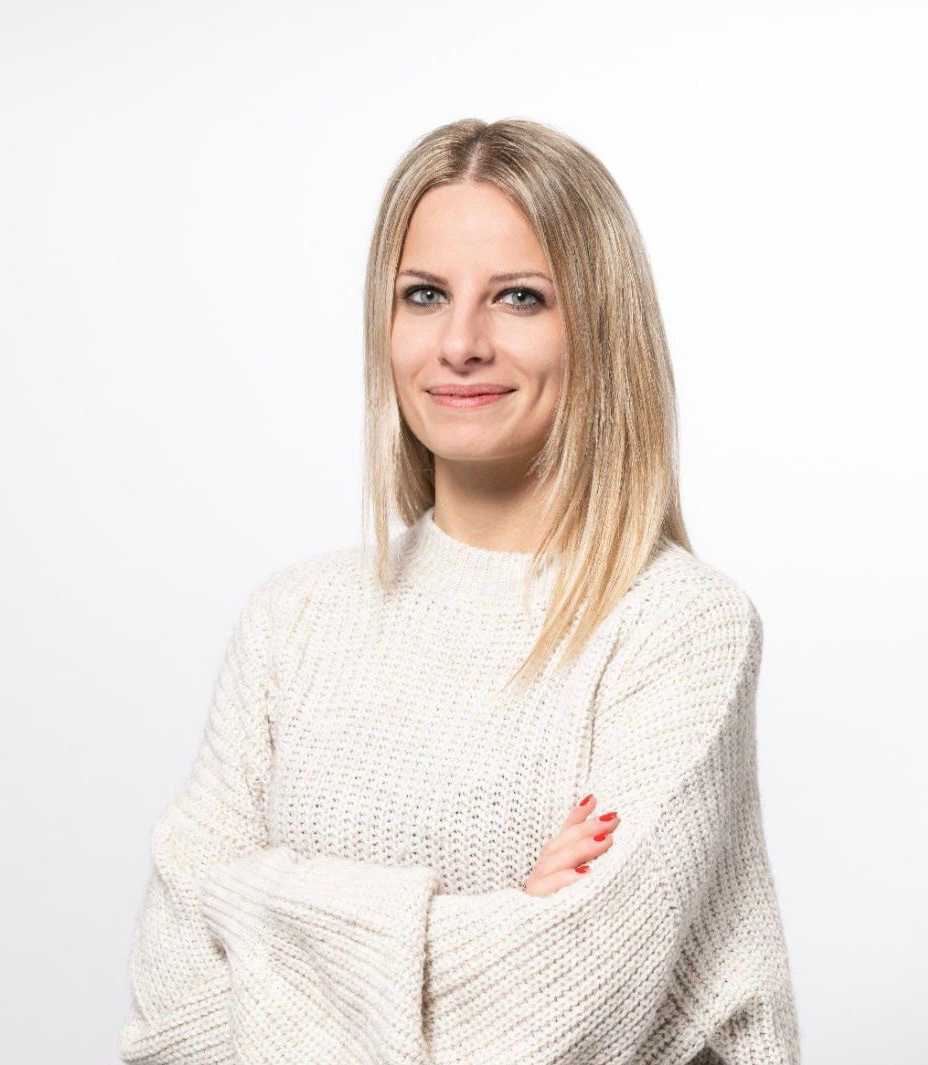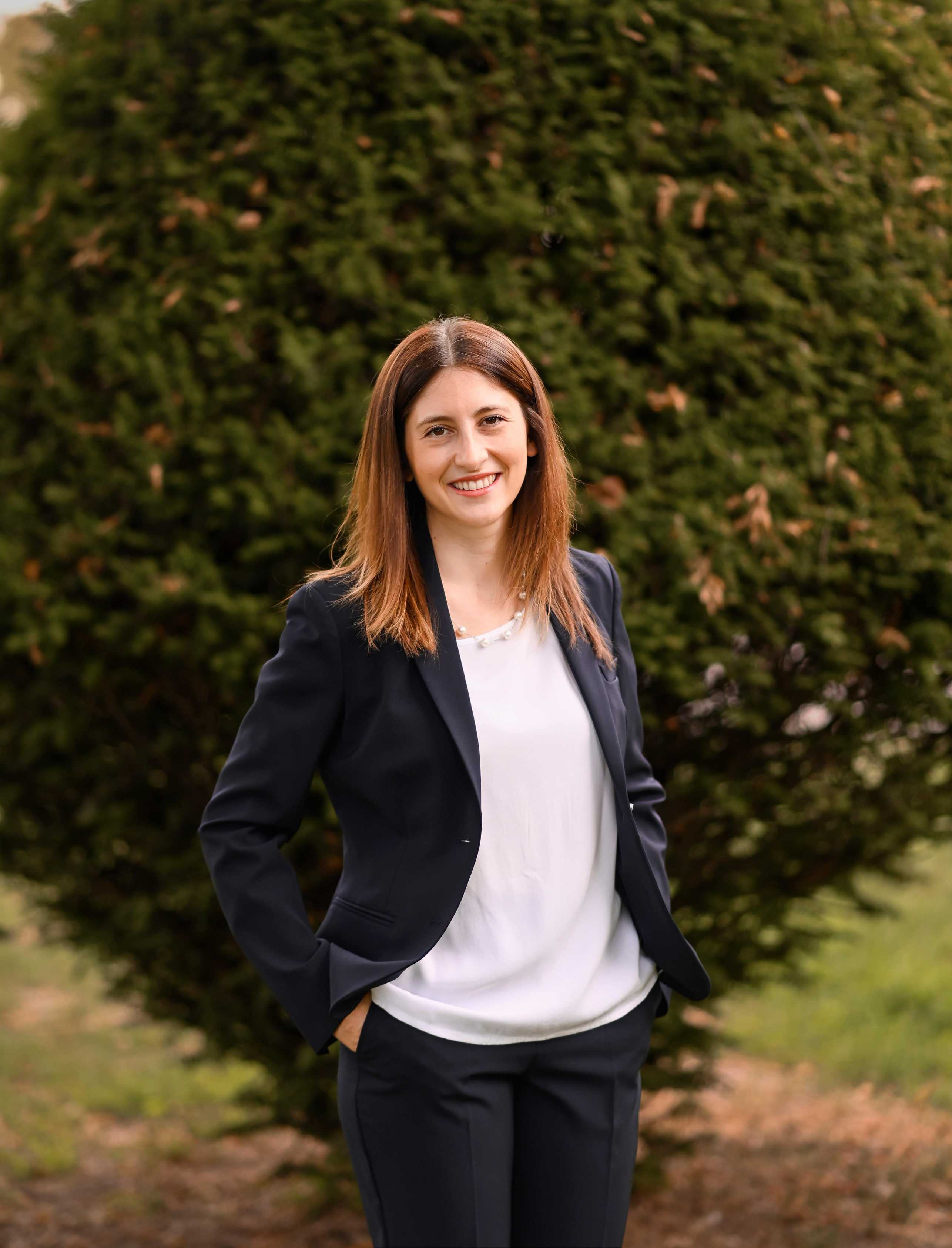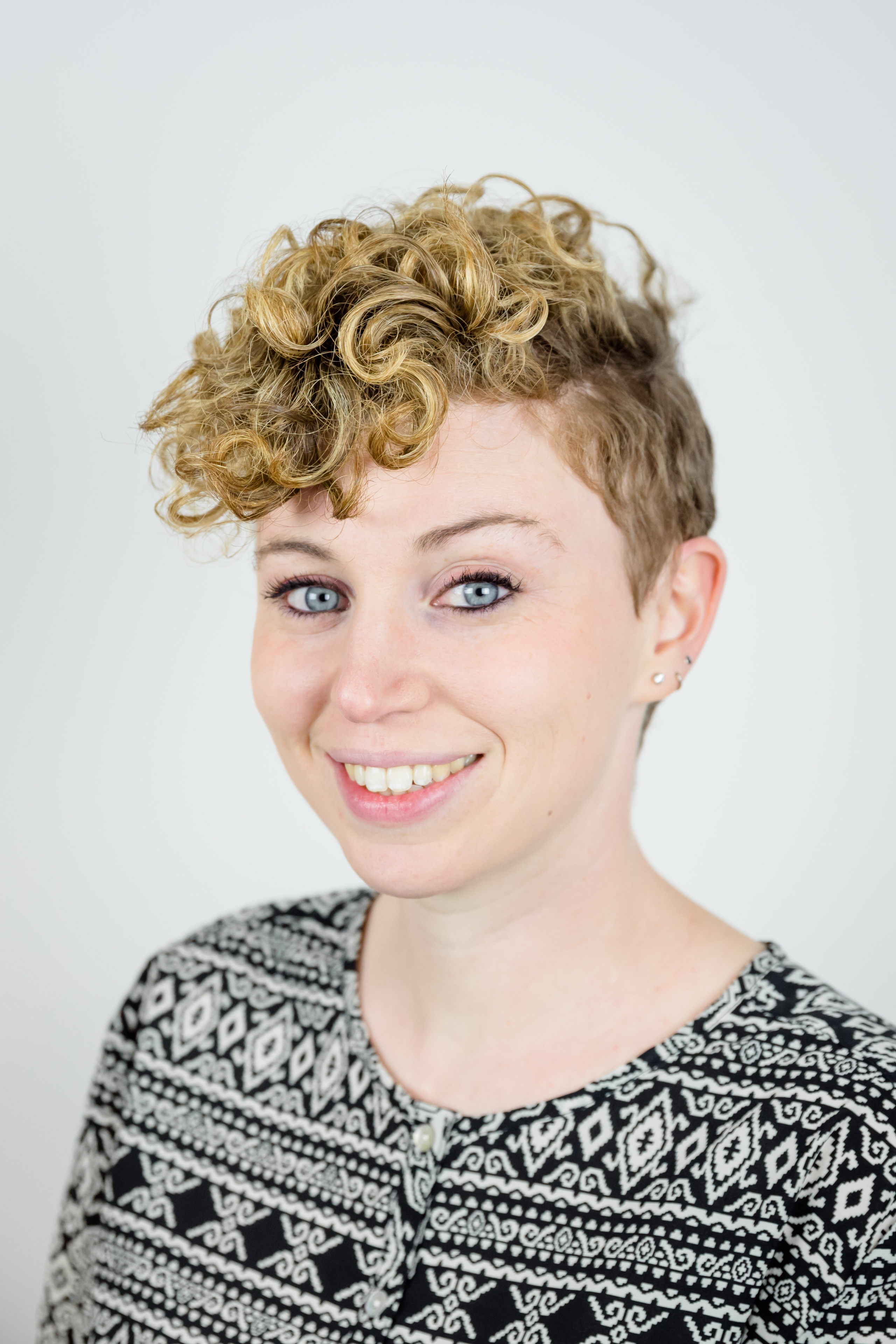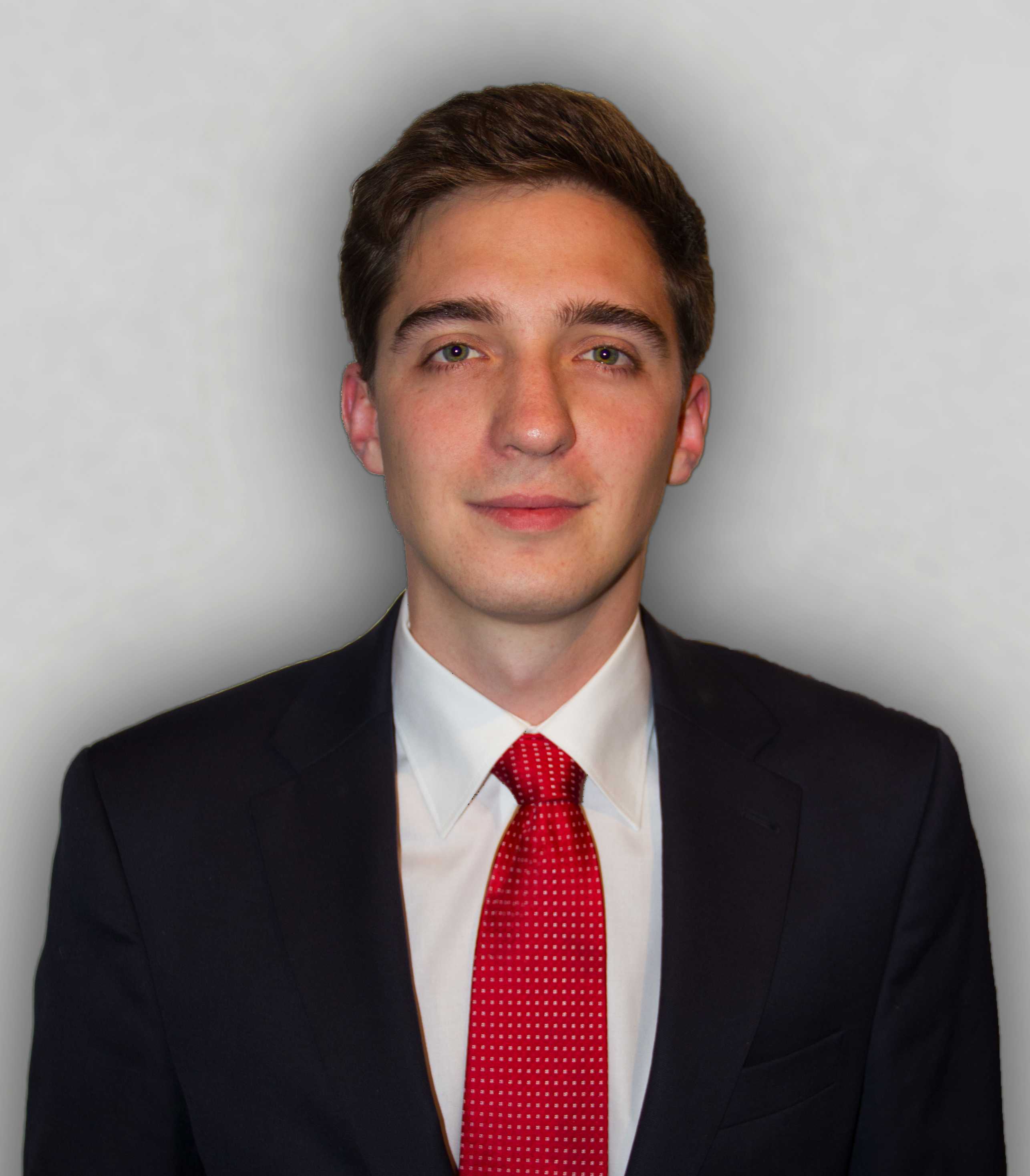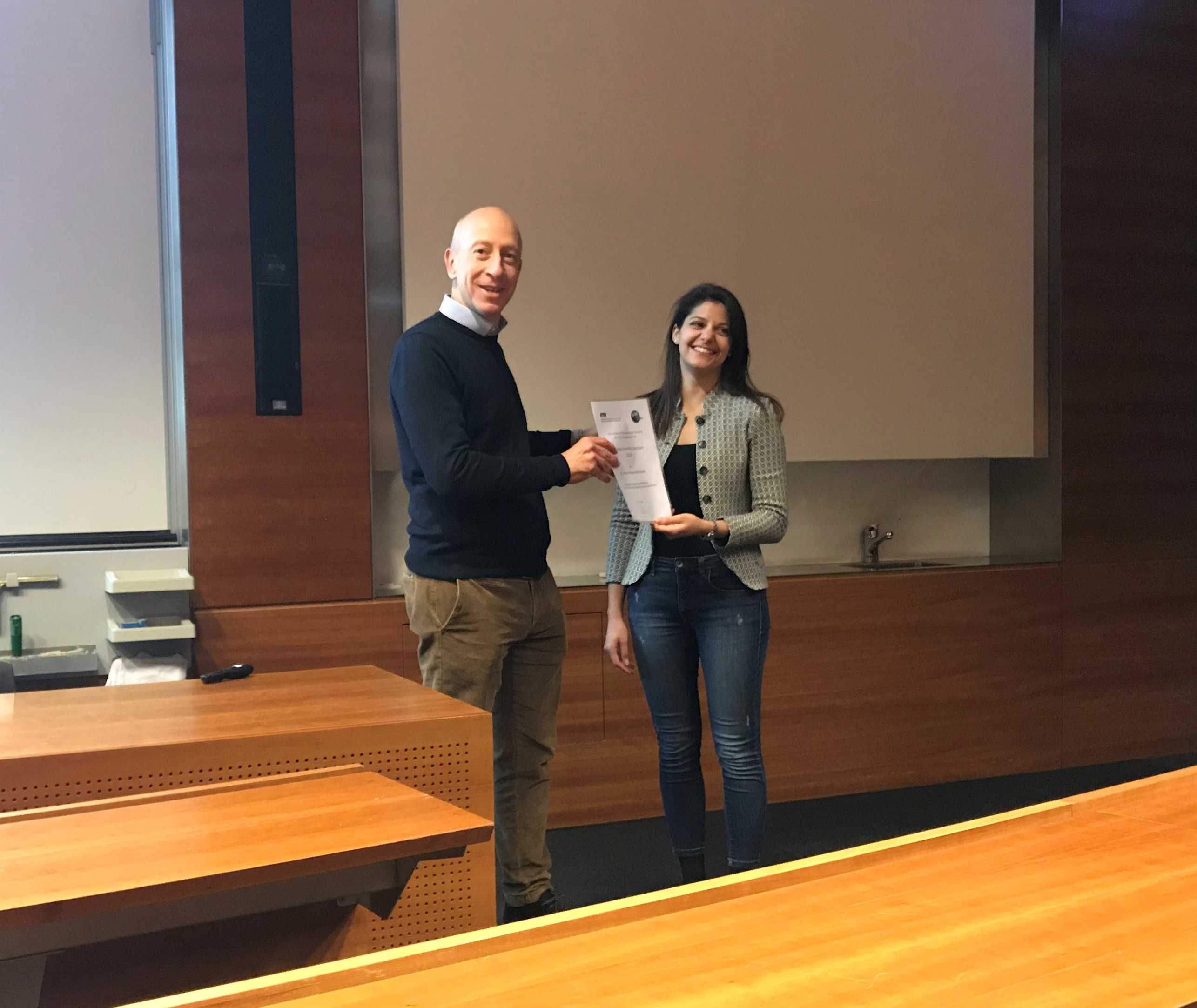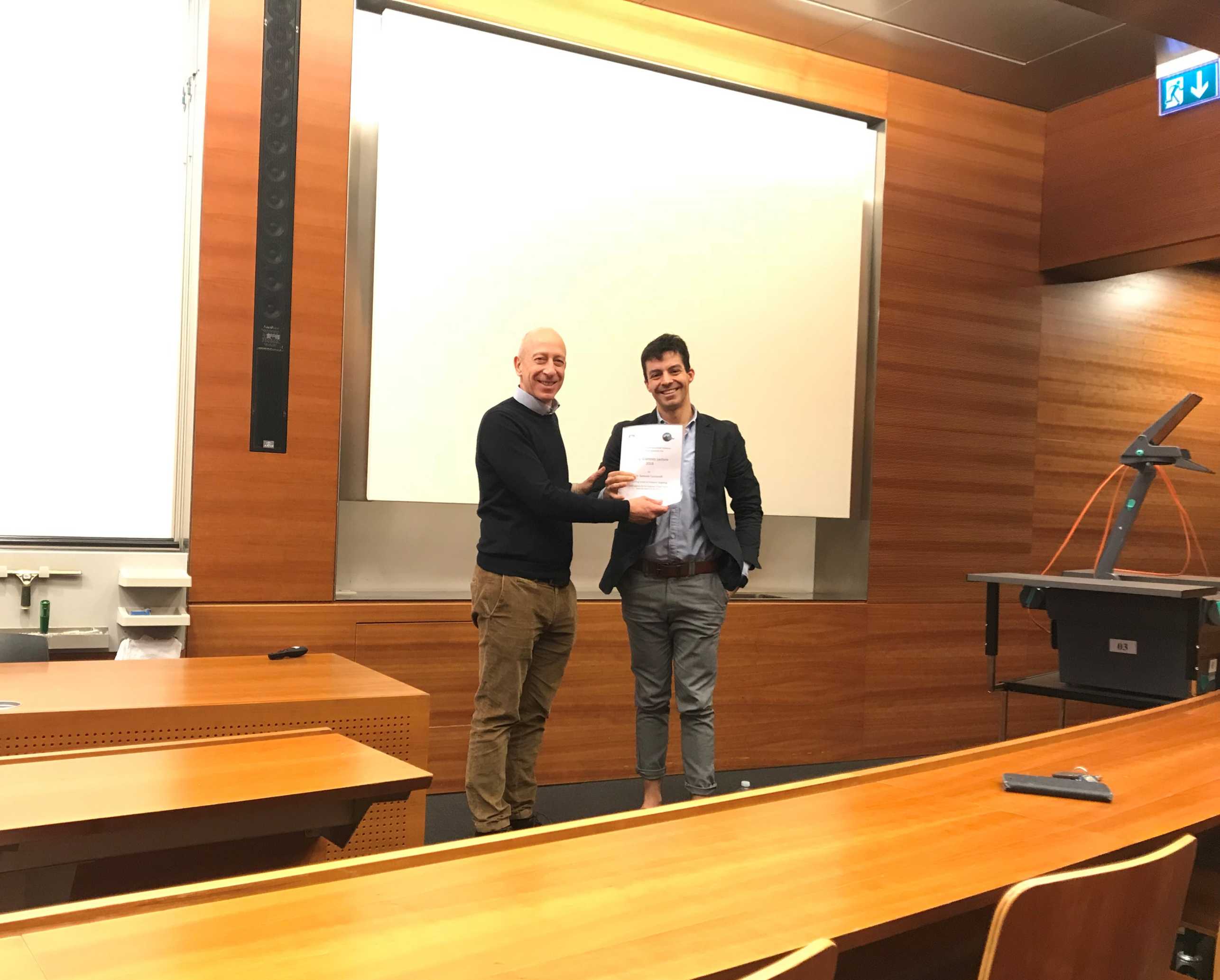Young Scientists Lecture
2024
The Institute of Pharmaceutical Sciences is proud to present the speakers of the Young Scientists Lecture:
Dr. Maria Luisa Marques de Sá Faquetti: "Unraveling polypharmacy in type 2 diabetes: a new data mining approach and medication appropriateness"
Dr. Tihomir Todorov: "Towards novel cancer stem cell-targeted therapies: the promising potential of radioimmunotherapy"
Born in Brazil in 1986, Maria Luisa Faquetti began her studies in Pharmacy and Biochemistry at the Universidade Federal de São Paulo, focusing her thesis on synthesizing organocatalysts. She then moved to Switzerland for her master’s in Pharmaceutical Sciences at ETH Zurich, where she worked under Prof. Karl-Heinz Altmann on the synthesis of antimycobacterial agents, advancing her skills in organic chemistry. Her growing interest in real-world applications led her to pursue a Ph.D. in Pharmacoepidemiology at ETH, collaborating with diverse groups like the Swiss Data Science Center and using computational methods for drug safety research. Alongside her Ph.D. work at ETH Zurich, Maria Luisa's curiosity and passion for the field drove her to successfully complete the Epidemiology and Biostatistics Ph.D. programme at the University of Zurich. Following her Ph.D., she worked on drug interactions in type 2 diabetes and now, under an SNF Sinergia grant, explores causal inference in chronic conditions at ETH.
Maria Luisa brings additional working experience in quality assurance consultancy (clinical research) in Brazil; and data analytics at Johnson & Johnson’s Rare Disease Epicenter in Basel, where she led analysis for a pioneering observational study on pulmonary hypertension (PHederation).
Born in Bulgaria in 1993, Tihomir Todorov earned his Bachelor’s degree in Molecular Biology at Sofia University “St. Kliment Ohridski” in Bulgaria and a Master’s in Biochemistry at Ludwig Maximilian University (LMU) in Munich, Germany. He gained significant expertise in cancer biology and therapies—including antibody- and cell-based treatments and chemotherapy—alongside immunology, studying immune mechanisms and immunopharmacology during his work at LMU, LMU Hospital, and the Babraham Institute, Cambridge.
Driven by a dedication to advancing cancer therapies, Tihomir joined Dr. Martin Behe and Prof. Dr. Roger Schibli’s Pharmacology group at ETH Zurich and the Paul Scherrer Institute for his Ph.D. research. Focusing on cancer stem cells (CSCs), he investigated CSC biomarkers, developed targeted radionuclide therapies, and preclinically validated CSC-targeted radioimmunotherapy using Terbium-161. Collaborating with the University of Basel, University Hospital Basel, and OncoRay in Dresden, Tihomir’s work offered insights into CSC targets and potential sensitizing strategies to enhance treatment efficacy.
2023
The Institute of Pharmaceutical Sciences is proud to present the speaker of the Young Scientists Lecture:
Dr. Nicole Zoratto: "Bioinspired, low-cost device for minimally invasive blood sampling"
Nicole Zoratto
Born in Italy in 1991, pursued her academic studies in Pharmaceutical Chemistry and Technology at Sapienza University of Rome. She conducted her master’s thesis at the Institute of Pharmaceutical Science of King’s College London, focusing on the development of in situ injectable polymeric gels for biomedical applications. In 2016, she received her degree at Sapienza, where she also started her Ph.D. in Pharmaceutical Science. In 2018, she joined the laboratory of Professor Ali Khademhosseini at California NanoSystem Institute of UCLA as a visiting Ph.D. student. Her doctoral project focused on the development of nanocarriers for drug delivery and soft scaffolds for tissue engineering applications, using microfluidic approaches. In 2021, she was awarded by the Postdoctoral Excellence Programme of Botnar Research Center for Child Health (BRCCH) to join the laboratory of Professor Jean-Christophe Leroux at ETH Zürich, where she is currently developing a minimally invasive and low-cost device for capillary blood sampling in a paediatric population.
2022
The Institute of Pharmaceutical Sciences is proud to present the speaker of the Young Scientists Lecture:
Dr. Francesca Borgna: "Combination of terbium-161 with somatostatin receptor antagonists: a potential paradigm shift for the treatment of neuroendocrine neoplasms"
Francesca Borgna
Born in Italy in 1989, obtained her degree in Pharmacy from University of Padova. She started to work on innovative therapeutic radionuclides since her master thesis under the supervision of Prof. Nicola Realdon (2014) and continued to expand her knowledge on targeted therapy during her doctoral studies (2018). In 2019 she was awarded with a Marie Curie Cofund fellowship to join PD Dr. Cristina Müller and Prof. Roger Schibli at the Paul Scherrer Institute. She focused on preclinical studies of small molecules for radioligand therapy and was able to alter their pharmacokinetics in order to limit their uptake by healthy tissues. Her recent work is focused on novel radionuclides like terbium-161, a beta minus plus conversion and Auger electron-emitter with great results against small metastases and single cancer cells. As a result, Universitätsspital Basel approved a clinical study against neuroendocrine neoplasms employing [161Tb]Tb-DOTA-LM3 developed by Francesca.
2020
The Institute of Pharmaceutical Sciences is proud to present the speaker of the Young Scientists Lecture:
• Dr. Zhi Luo: Design of novel 3D printing materials for pharmaceutical applications
Zhi Luo
Zhi Luo, born in China in 1991, received his bachelor’s degree in Chemical Engineering from Tsinghua University in 2013. He then moved to Switzerland for his Ph.D. at the Materials Science and Engineering Department of EPFL under the supervision of Prof. Francesco Stellacci. His doctoral thesis was focused on the physical chemistry and synchrotron characterization of complex nanomaterial interfaces, which was honored with the Thesis Distinction Award at EPFL in 2018. He then decided to broaden the scope of his research and joined the group of Prof. Jean-Christophe Leroux at the Institute of Pharmaceutical Science of ETH as a postdoc. Supported by the ETH Fellow program, currently he intends to apply his understandings in bio-material interfaces to the field of drug delivery, especially to the development of novel concepts for oral delivery of macromolecules using physical and material science approaches.
2019
The Institute of Pharmaceutical Science is proud to present the two speakers of the 2019 Young Scientists Lecture:
• Dr. Francesca Grisoni: Learning the "chemical language" with machines
• Jonathan Kiefer: Treating Acute Myeloid Leukemia with Novel Antibody-Based Therapies
Francesca Grisoni
Francesca Grisoni received her PhD in 2016 at the University of Milano-Bicocca (Dept. of Earth and Environmental Sciences) in the group of Prof. Roberto Todeschini, with a dissertation on computational and chemometric approaches for bioaccumulation prediction. During her PhD, she was hosted at the U.S. National Center of Computational Toxicology (NCCT), in the group of Dr. Richard Judson, where she developed machine learning models to predict cellular stress and cytotoxicity. Since then, she is member of three international consortia led by NCCT for large-scale toxicity prediction and testing prioritization using in silico approaches. In 2014, she visited Gisbert Schneider’s lab at ETH as a guest PhD student, and fell in love with the potential of machine learning to identify and design bioactive compounds. After a one-year research sabbatical – working as a data scientist in a startup company and as a biostatistical consultant in a pharmaceutical company – Francesca stepped back to academia with renewed energy and enthusiasm. Her collaboration with ETH continued in 2017 and 2018 during her postdoctoral fellowship at the University of Milano-Bicocca, for the development of novel virtual screening approaches. In January 2019, she joined Gisbert Schneider’s group as a Postdoctoral Researcher, focusing on deep learning for de novo design, and on investigating the potential of AI to re-shape the field of computer-assisted drug discovery.
Jonathan Kiefer
Jonathan Kiefer, born in Germany in 1989, studied Molecular Biotechnology (B.Sc.) at the University of Heidelberg. He majored in Drug Discovery and worked at the Deutsches Krebsforschungszentrum (DKFZ) and at the National Center for Tumor Diseases (NCT), where he performed research for his bachelor’s thesis on the generation of anti-EGFR antibody fragments. Afterwards, he moved to ETH Zürich to study Biology (M.Sc.) with a focus on Immunology and Microbiology. Jonathan performed research projects in the group of Dario Neri (ETHZ) on raising new antibodies via phage-display and in the group of Andreas Plückthun (UZH) on new designer repeat proteins. For his master’s thesis he went to Massachusetts Institute of Technology (MIT, Cambridge, US) to work in the group of Dane Wittrup on the engineering and directed evolution of a hyperstable minimalist binding protein via yeast-display. He returned to Zurich for a PhD in the group of Dario Neri, where he started a close collaboration with the group of Markus Manz of the Hematology Unit at University Hospital Zurich (USZ). Together with collaborators at USZ he developed new antibody-based therapies for the treatment of Acute Myeloid Leukemia: full IgG antibodies, bispecific antibodies, as well as Chimeric Antigen Receptor T cells (CAR-T cells). Jonathan is currently working at University Hospital Zurich with the aim of bringing a molecule candidate from his PhD research into the clinic.
2018
The Institute of Pharmaceutical Science is proud to present the first two speakers of the Young Scientists Lecture:
• Dr. Irene Pereira de Sousa: Strategies in oral drug delivery: formidable barriers and how to overcome them
• Dr. Samuele Cazzamalli: Getting small to enhance targeting: small ligands for the targeting of solid tumors from the bench to the clinic
Irene Pereira de Sousa
Irene Pereira de Sousa, born in Italy in 1987, studied Pharmaceutical Chemistry and Technology at the University of Padova. She performed her master thesis under the supervision of Prof. Paolo Caliceti developing a polymeric-based tumor targeting system and graduated in 2012. The same year, she relocated to Austria and started her Ph.D., in Pharmaceutical Science at the University of Innsbruck under the supervision of Prof. Andreas Bernkop-Schnürch. During this time, she specialized on nanoparticulate drug delivery systems for the oral administration of peptides and proteins, focusing on overcoming one of the major barriers that nanocarriers face upon oral delivery: the mucus barrier. For her work in this field she was awarded with the Lichtenstein prize for outstanding research in 2015. After completing her Ph.D., Irene was awarded the ETH postdoctoral fellowship to start her project aim at developing a microparticulate carrier for the oral treatment of phenylketonuria. Since 2016, she is working at ETH Zurich in the group of Prof. Jean-Christophe Leroux as postdoc.
Samuele Cazzamalli
Samuele Cazzamalli (Italian, 16 December 1990) studied Medicinal Chemistry at the Universitá degli Studi di Milano, where he graduated with a thesis on the development of novel techniques for the application of biocatalysts in flow chemistry under the supervision of Prof. Carlo De Micheli. He moved to Switzerland in 2015, where he performed his PhD at ETH Zurich in the group of Professor Dario Neri with a focus on non-internalizing antibody- and small molecule-drug conjugates for the treatment of cancer. Samuele is currently working at Philochem as research scientist on the discovery of novel small organic ligands for the active delivery of imaging and therapeutic agents to tumors.
